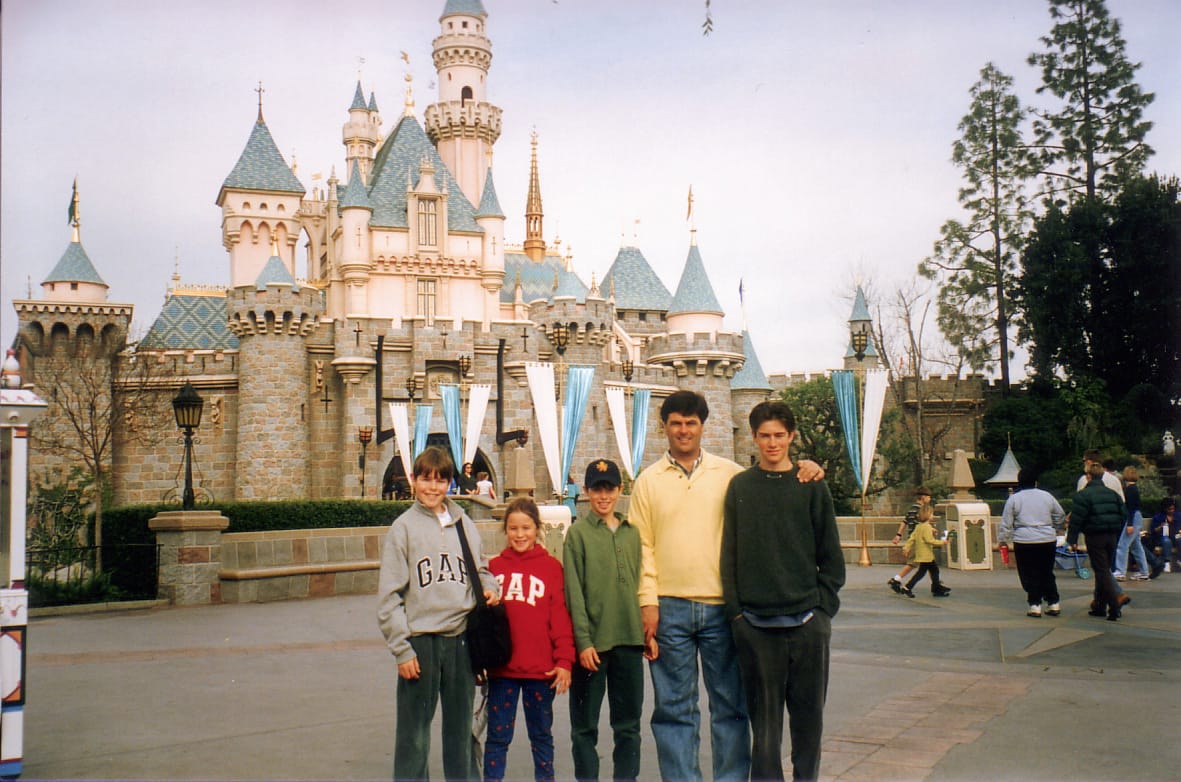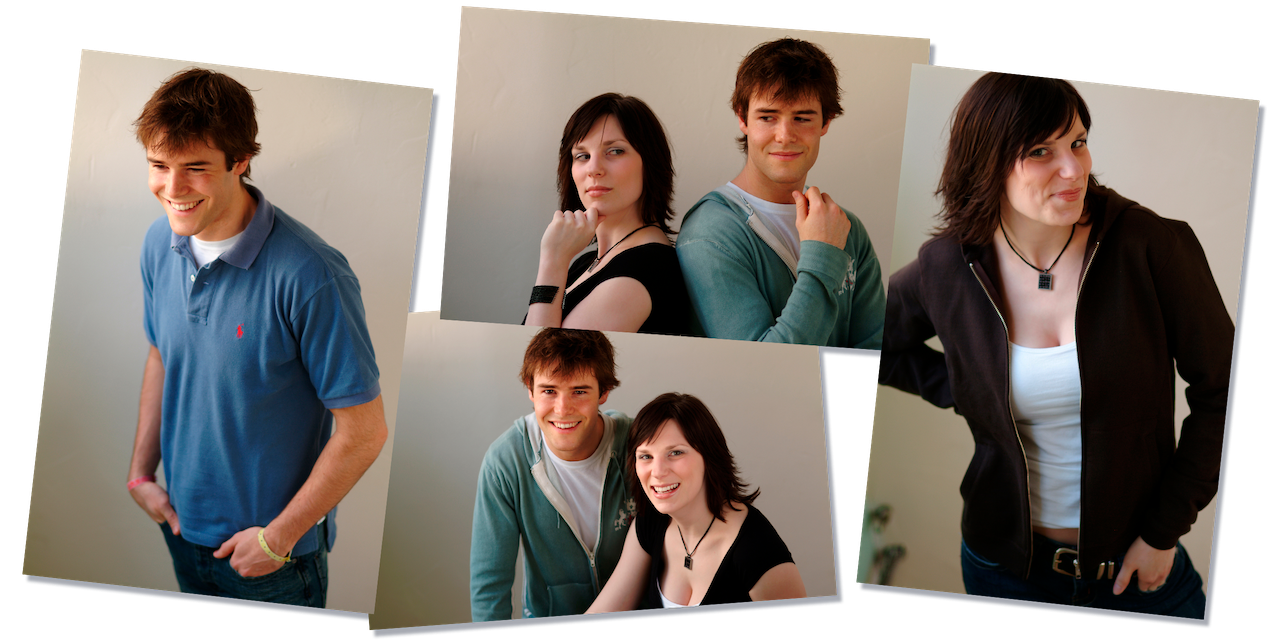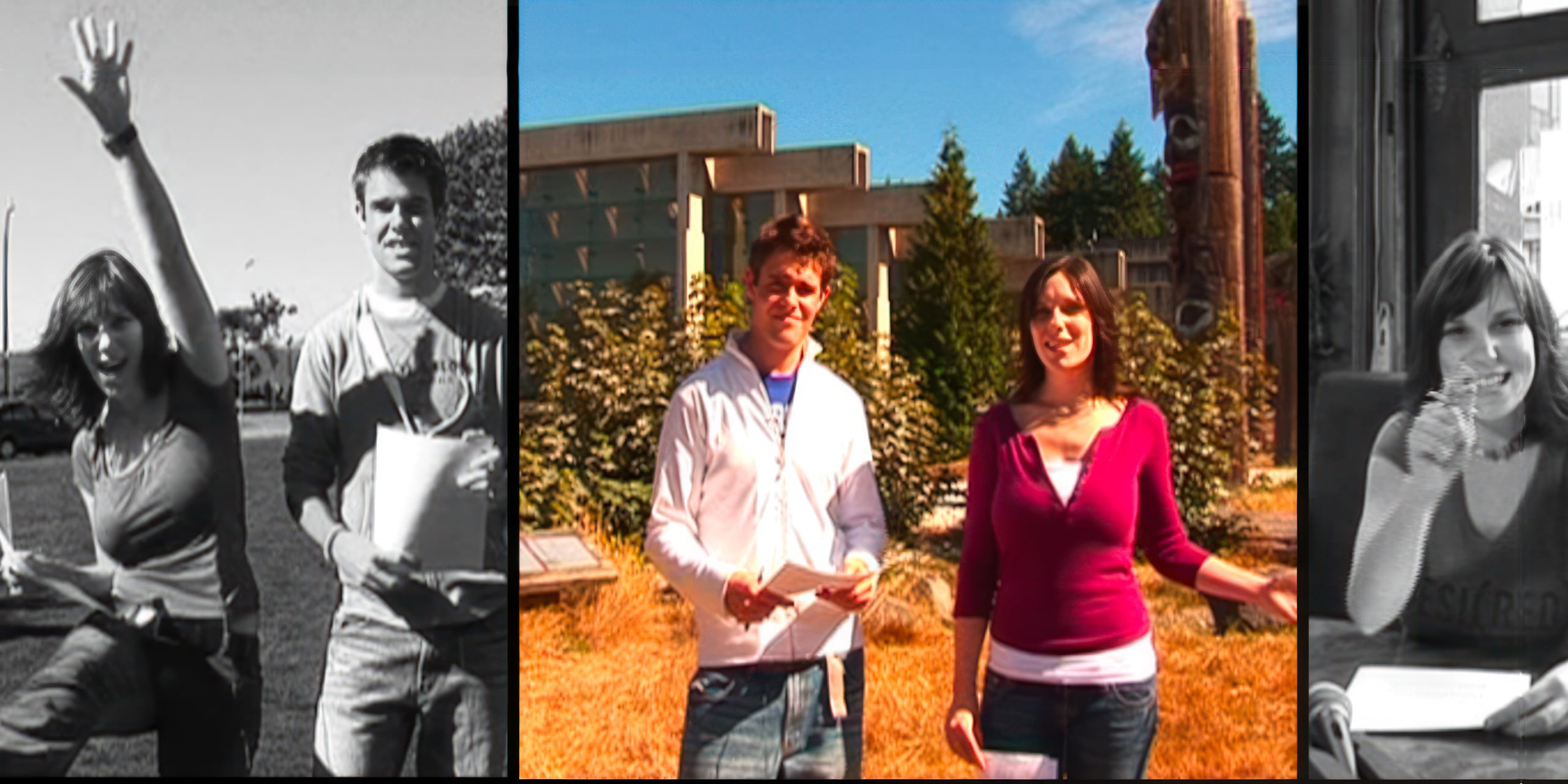THE R.C. PRINCIPLE
Thurs, SEP 12, 2024 - 11:25
One of the most challenging aspects of writing fantasy is finding ways to navigate similes, metaphors and sayings.
It sounds silly, but to create the most immersive experience for the reader it’s necessary to relegate the vast treasure trove of real-world examples to the proverbial dustbin, because they are of no use to us.
Think about it. Perhaps you have a character in your story who leaps into the fray whenever danger is near, and they’re renowned for their pluck and courage. Another character tries to describe them in a dialogue by saying, ‘Bruk? Yes, he’s as brave as a…’?
Brave as a what?
In a world (or universe) without lions, we need an alternative or we break immersion and diminish the credibility of the whole telling.
Doing this requires some mental gymnastics, for the substitute needs to feel natural and authentic and, of course, it needs to be understood by the reader without effort.
The only valid option is to use terminology and concepts which belong in your world. I call this concept the, ‘Robinson Crusoe Principle’, because you’re basically stuck on an island (ie. your world), limited to a certain ‘geography’ of ideas and expressions. Anything I pick has to come from this island, or the story is cheapened.
Make sense? Great!
Well then, instead of just inserting new analogues into well-known sayings, why don't we go one step further and make our phrases do double-duty?
For example, instead of a ‘lion’, you might say, ‘brave as a newborn greyhorn’. I don’t know about you, but for me this immediately calls to mind a beast which has pluck. A creature that is probably dangerous and formidable right from the get-go.
We’ve therefore deepened our character by defining an easily graspable characteristic, while also slipping a little worldbuilding to the reader unconsciously.
Not too shabby, eh?
I will admit that when I first started writing fantasy, I was a serial over-user of real-world references. It was lazy and made my writing amateurish, and I was really glad when my editor pointed it out. After all, ‘his mind ping-ponged about,’ isn’t exactly fitting for a character living in a muddy, medieval dystopia. I doubt that world will ever experience the unbridled joy that is ping-pong.
That was a long time ago, and I’ve since learned to enjoy the process of inventing new ways to play with common expressions and imagery. Sure it's a challenge, but it also makes one conscious of how often the real world tries to intrude on your fantastical creations.
A Lost Civilisation?
Thurs, AUG 22, 2024 - 14:47
A while ago while enrolling at Manchester University, I was asked why I wanted to study Egyptology. My answer was simple: I’ve always loved ancient history, especially Egypt's predynastic period. I would easily have studied the Olmecs
or the Sabians of Harran instead but as those courses weren’t available, I took what I could get. "Oh", I added, "and I really enjoy the work of Graham Hancock.”
That probably wasn’t what Joyce Tyldesley — a warm and patient
egyptologist with four decades of experience and an impressive body of scholarly work behind her — wanted to hear, and I was aware that by throwing Hancock's name about I was risking my chances of being accepted. Despite my concerns,
however, I was thrilled when an acceptance letter arrived and my course began under her tutelage.
I would soon come to realise that both she and my other instructor, Nicky Nielsen, were not only familiar with Hancock but
also with students magnetised towards a study of Egyptology because of him. And to my surprise, both proved refreshingly open on the subject.
To explain my surprise for those unfamiliar with Graham Hancock, it’s fortunate
that your introduction hasn’t been tainted by the often hostile academic world, press, or internet. While critics often label him as a ‘pseudoscientist’ or a proponent of ‘ancient aliens,’ these claims are misleading. And as someone
who has followed Hancock’s work for nearly a decade and read all his books on the subject almost a dozen times, I feel I can clarify a few things.
Who is Graham Hancock?
Hancock is a journalist who over the last 30 years has developed a hypothesis that a large chapter is missing from human history. Indeed, his proposal is that a great civilisation
of antiquity was wiped from the historical record, and that the world and its cultures as they exist today are to a large extent a fragmented, dizzied re-emergence of what went before.
It’s important to clarify that he is not a scientist and has never claimed to be one. Likewise, he does not and has never proposed that ‘aliens’ or ‘atlanteans’
built the pyramids, nor that they were responsible for any of Earth’s various ancient megalithic structures or cultures. He does not think his theoretical lost civilisation was more technologically advanced than ours. And for good
measure, let’s add that there’s no mention in his works of prehistoric hyper-futuristic crystal-powered shark-people creating the modern delight that is deep-fried ice-cream, either.
 Darnit…it's those pesky hyper-futuristic crystal-powered shark-people again!
Darnit…it's those pesky hyper-futuristic crystal-powered shark-people again!
On a serious note though, it's not alright that tags like ‘anti-science’, ‘racist’, ‘white supremacist’, or ‘misogynist’ are routinely thrown about in order to rip the chair of legitimacy from underneath him. Clearly, this
is done so by parties who are either ignorant, or duplicitous, or both, but I am happy to inform you that Graham is none of those things.
In brief, Hancock’s main concern is the human story as we know it — a story he believes
has been mishandled. And this hypothesis isn’t mere whimsy but the result of three decades of research in the fields of archaeology, anthropology, geology, astronomy, and paleontology, among others. It’s been gleaned from combing through
journals like Nature and PNAS. It’s the result of travelling the world, diving the oceans, talking to tribal leaders and storytellers, of scrutinising archaeological sites and studying the skies. Indeed, it’s the result of finding
a scattered handful of pieces of a grand puzzle and slowly drawing them together to form the most logical image he can make.
So…is he right?
Right now, thanks to a certain TV show which we’ll return to shortly, Graham is facing an army of ‘debunkers’ and critics who seem hellbent on discrediting or flat out ‘cancelling’ him.
But the question we should be asking isn’t whether Hancock is ‘right’ or ‘wrong’, but whether his ideas merit consideration.
Personally, I think they do. In fact, his works have persuaded me that the core of his argument
is on the money, and that although greatly derided and thrashed by critics and sceptics alike, Graham will eventually be vindicated by the slow and steady build-up of supporting evidence.
This has already begun. Graham
first introduced his ‘lost civilisation’ theory in his 1996 novel Fingerprints of the Gods, in which he stated that a cataclysm around 12,900 years ago killed off America’s megafauna, drove sea-levels up by around 120 meters,
and almost wiped humanity off the face of the planet.
At the time of publishing he was unable to prove that a cataclysm had in fact happened and what form it had taken, even though all the signs he’d found pointed to one.
This lack of a ‘smoking gun’ resulted in all kinds of ridicule and scorn from the media and academics. However, recent research suggests that a cosmic event, possibly comet fragments, did impact Earth around that time, causing massive
floods and global upheaval. This lends credibility to Hancock’s ideas, even if the fine details of the event remain disputed.
We should not for a moment imagine that hostile reactions to new ideas are uncommon in academia.
Time and again, pivotal characters in various fields who follow evidence and construct novel explanations are disbelieved, even attacked, before their claims are vindicated and they end up making grand contributions to science. J Harlen
Bretz, for example, argued all his life that cataclysmic floods scoured the North American landscape and was treated awfully by colleagues for 50 years before he ended up getting the Penrose Medal (the Geological Society of America's
highest accolade).
Where's the evidence, then?
One of the sticking points for Graham's opponents is the lack of physical evidence. Why can't he show us any ancient cities or structures or remains from this seafaring, technologically
capable civilisation of his? And it's a fair question.
But let's not forget that if this catyclism did happen, then continent-sized icecaps melted down and vast tidal surges periodically claimed the seas as they rose by
around 120m (and a great deal more happened, as well). In the event, a landmass equivalent to roughly 10% of the earth's total land area was lost, and any great sea-faring civilisation of the deep past along with almost all remnants
of its coastal cities and activities would be extremely difficult to find. We might expect, however, that anything that did survive would be large and solid enough to withstand that punishment, or be buried underground, enduring
the slow march of millenia afterwards. Graham's work often focuses on places and structures like these.
Despite the fact that expecting to find remains of anything after 12,000 years is a long-shot, I think Graham has cobbled
together a solid body of potential leads across the 6 books he's written on the topic, from sunken coastal complexes to odd megalithic achievements and even potential remnants of shared knowledge and belief.
Debunking, Dedunking, Destructing
Hancock is no stranger to having his ideas pilloried, and the latest example was a contentious debate on Joe Rogan with archaeologist Flint Dibble. Sadly, what could have
been a really wonderful debate which brought both sides to a constructive discussion was reduced to a spectacle, as Dibble came in guns blazing and did his best to discredit and cast Graham as a deceitful loony.
As mentioned,
this is nothing new and to be fair to Dibble, there is a lot of looney out there. In the past few years alone a deluge of books has flooded the stores, all jostling for a piece of Graham's market-pie. Their blurbs utilise Graham-esque
language, their themes are similar, often clearly influenced by his work but always with more sensationalised claims. Most are pale facsimiles, uninspired and lacking intellectual polish, and not worthy of serious study.
Then there's the 'ancient-aliens' community, including adherents of Zecharia Sitchin and various YouTubers claiming to be ‘alternative historians’, none of whom seem capable of – or flat out ignore – proper and responsible research.
‘Ancient Architects’ and such channels are prime examples. All of this serves only to muddy the waters and makes it hard to find genuine, sensible and credible sources for information. They are on the rise, and it is very concerning
that poor scholarship creates such entertaining content.
 Come on in, the internet's fine! YouTube and social media are hotbeds for loonies, but that doesn't mean we should lump everyone together.
Come on in, the internet's fine! YouTube and social media are hotbeds for loonies, but that doesn't mean we should lump everyone together.
Still, it's all too easy to lump Hancock in with this crowd, either out of ignorance, or the intention to destroy the value of his work, resulting in armies of experts (and non-experts, alike…) feeling some primal need to
eliminate a 'threat' to their coveted fields of study. Indeed, the now infamous series Ancient Apocalypse presented by Graham himself was recently named 'the most dangerous show on Netflix'.
Curious, really, as
I hadn’t felt reframing our ancestors as smarter than we realised was that bad…
But is it dangerous?
I hardly think so, even though in my opinion Ancient Apocalypse did very little justice to Hancock’s
work. The show was clearly designed and produced to appeal to a mass-market and it utilised the same, awful approach that destroyed the Discovery Channel and National Geographic over a decade ago, throwing credibility out the window
with dramatic music, flashy CG and a few sped-up crash-zooms. It placed spectacle, sensationalism, and commercial success above respect for the audience’s intellect, and drew attention to Hancock for all the wrong reasons. In short,
this show was, in my view, akin to transmuting numerous doctoral theses into a children’s cereal advert.
(Perhaps I am alone there, however, because audiences loved it. The show’s Rotten Tomatoes score is currently sitting at 85%. But that is another post entirely…)
Why It All Matters
The debate around Hancock isn’t just about who is right or wrong. I certainly don't agree with everything he says. But I don't have to. It’s about the importance of questioning established
narratives and exploring alternative explanations.
Archaeology is a painstaking, difficult, convoluted discipline which must rely on interpretation of material remains to draw conclusions. And the operative word there is
interpretation, because so much hangs on context and inference and opinion. The result is that we change things frequently, tossing aside one theory and digging up others as new evidence comes to light.
Indeed,
with almost 400,000 years now allotted for anatomically modern humans to roam the planet, the mainstream narrative simply can’t be the only one. How can anyone possibly say that they know for sure what happened over that length of
time? Or that no great civilisation existed in prehistory? It would be ludicrous and foolish to do so. The truth is that what we call ‘history’ is simply the best guesswork of events over the last 7,000 years and as stated earlier,
we’re not sure about most of it.
Surely, therefore, as long as there is evidence to support an idea and good reasoning behind it, it should be permissible to hypothesise? Given the limitations of our knowledge and
that fact that our understanding is expanding all the time, remaining open to new ideas — especially if they challenge the status quo — is vital. It's exploration itself which allows paradigm shifts to happen.
 The world is a big place. There's room for ideas. Things are more fun that way.
The world is a big place. There's room for ideas. Things are more fun that way.
Hancock’s work is therefore valuable not because it is infallible but because it breaks the mould and encourages
us to think about our past with fresh eyes. And there's another reason. Discovering his work rekindled an almost extinguished childhood passion for studying the ancient world in me. It spurred me to go out and explore the topic far
more thoroughly than I even would have otherwise, seeking out and reading works from a wide range of authors. I've since delved into texts from Toby Wilkinson, Rosita Forbes, Flinders Petrie, Walter Emery, Thor Heyerdahl, Joyce Tyldesley,
Robert Bauval, Arthur Posnansky, Kara Cooney, Charles Hapgood, Robert Fuson, and Christina Riggs, just to name a few. And these authors aren’t all ‘alternative historians’. Many are thoroughly mainstream and even then, all of them
have a slant of their own.
Graham’s work slots readily into this corpus of interesting ideas and research. He’s not a ‘threat to science’ or ‘dangerous,’ but a person with compelling ideas, who challenges us to look again at what we thought we knew.
Whether you agree with him or not, I encourage critics to read his books with curiosity, rather than dismissing him out of hand. You may just fall in love with the excitement and awe Hancock holds for the human story anew,
just like I did.
I hope you’ll forgive this self-indulgent and rather enormous post. Sometimes, it's important to add a little counterweight to the abundant and oft ill-informed criticism out there.
A list of Graham Hancock's books on the lost civilisation hypothesis (A = available as an audiobook):
• “Fingerprints of the Gods” (1995) - A
• “Heaven’s Mirror” (1998)
• “The Message of the Sphinx” (1996)
• “Underworld” (2002) - A
• “Magicians of the Gods” (2015) - A
• “America
Before” (2019) - A
Adventureland
Wed, AUG 15, 2024 - 9:03
To all who come to this happy place, welcome. […] Disneyland is dedicated to the ideals, the dreams, […] and the hope that it will be a source of joy and inspiration to all the world.
On a cool California morning on July 17, 1955, the most ambitious amusement park ever imagined was revealed to the world. Televised on ABC television to an estimated 90 million viewers across America, Walt Disney gave a short and iconic speech before
the gates were opened to the public for the first time.
Over succeeding decades the park would change, parts added and removed as trends came and went, but Disneyland’s goals would remain steadfast. It would
remain place where visitors could dream and where they could see dreams become reality.
 My first visit to Disneyland was in 1997. See the gumpy kid with the camera bag? Yep, that's me.
My first visit to Disneyland was in 1997. See the gumpy kid with the camera bag? Yep, that's me.
I first visited Disneyland in 1997 with my family and remember only vague slices of the experience. Memories are far clearer from my next visit with a friend in 2009, when we roadtripped down the east coast from Vancouver to stay
overnight at Disneyland Anaheim itself.
I’d been having a bit of a rough time back then and was emerging from a bout of depression which had plagued me since the year before — the first serious case I can remember. But the
morning I awoke in Disney’s Grand Californian Hotel and stepped outside onto Main Street, into the warm air and with fingers of dawn sunlight stretching across the charismatic buildings, I was transported away in a way I hadn’t been on
my first visit. And not just physically. Exploring ‘Adventureland’ with its thatched roofs, tiki-totems and river cruise, I was captivated by the ambiance and the excitement it stirred in me. In Tomorrowland, I clearly recall stepping
from the dark tunnel of Space Mountain and telling my friend that, “I didn’t think I could still be thrilled like that,” then surreptitiously wiping my eyes.
Perhaps that sounds dramatic but, fittingly for that place, it were
as if some spell had been broken. I felt human again and it was this experience that made me realise the power of escapism. Of adventure and magic.
Over the course of the day as we explored this imaginary world made real, I
was overwhelmed by the effort and attention to detail. Once you step into the park, you never see a seam, with everything from the rides to the ambient music to the plants and trash-cans meticulously designed.
Many don’t seem
to notice or appreciate the surroundings there. Some are only there for the rides, others wander about eating their ice-creams, while other still consider themselves above it all and write the place off as ‘tacky’. But to anyone paying
attention it’s difficult not to find Walt’s creation astounding.
 Watch out for those hippos! Adventureland is immersive and brims with exotic beauty.
Watch out for those hippos! Adventureland is immersive and brims with exotic beauty.
To me, the seed was planted. This was what I wanted to do. To thrill and delight and stir emotion in people, just like this place had in me. Disneyland pulls together many disparate ideas and concepts and melds them into a coherent
whole on a massive scale, and I realised the whole approach contains lessons galore for writers. It brought home that previously nebulous phrase that “thoughts become things,” and more importantly, it showed the power of immersion and
polish when an creating an impactful experience for an audience.
Writers might not have access to hundreds of empty acres to build on or billions in funding, and we might not have the glitz and glamour factor of a video-game
or movie, but we don’t need any of that. All we need to transport someone away is words.
The ‘cinema of the mind’ is a powerful thing and — not to channel my inner Bob Procter too heavily — if you can see it all your head,
then it’s just one more step to make it real.
In a way, I find it thrilling to imagine that through writing, I’m creating my very own Adventureland for readers to explore.
Jim :)
Flashback: The Lemon Lime Vodcast
Thurs, MAY 23, 2024 - 10:07
Buried deep within the hidden corners of my YouTube channel, a series of deactivated videos sits like an unused bassline, patiently thrumming away as if waiting for a moment to join the song.
It was early 2005 when, armed with
a trusty Sony HDR-FX1 (which had no HDR functionality…) and a whimsical sense of optimism, I ventured out into Vancouver's bar and pub scene to film a video-podcast which covered new music, movies, and video games. I didn't expect much
from it, but there were very few other 'video weblogs' going around at that time and Apple's new iTunes podcast service was looking distinctly quiet, so I gave it a shot.
I dubbed the project, 'The Lemon Lime Vodcast' and thought
the name quite punny and clever, and although a recent article about the bygone 'vodcast' fad boldly proclaims the origin of the word 'short for “Video-On-Demand-cast”',
I actually intended for the word 'vodcast' to do triple duty, combining 'vodka' with 'video' and 'podcast'.
As for the 'LLV' (as it came to be known) itself, it would go on to enjoy two-and-a-half seasons in that many years,
and gain some good traction in the early YouTube world, rising to number 32 in the Podfeed.net 'video weblog rankings', just underneath some now retro-classics like 'Tiki Bar TV' (coincidentally also filmed in Vancouver), Diggnation, and
Rocketboom.
For the series title sting, 'Siren on the 101' by Silverstrand, I got permission from the band itself and to this day, a little badge sits next to each episode on YouTube: "Copyright-protected content found. The owner allows
the content to be used on YouTube."

Filming the show was a blast. It featured various funky
bars around Vancouver, in which I hosted the LLV alongside the wonderful (and ever cheerful) Michelle Miazga, with Zach Shore as our cameraman. I was thrilled to work alongside them both and owe them a lot of thanks, as well as friends,
bands, bar-owners and the viewers for making the project the success it was. Two-and-a-bit-years after it went live, I was truly sorry to see it come to an end, but other projects (and a full-time job) were taking up my attention.
The LLV videos had been inactive for a long time and when nostalgia beckons, I sometimes take gander at the thumbnails and remnisce about the early days of content creation. Very rarely, I'll get an email from an old viewer who comments
on how much fun the show was, or asks if it's ever coming back (the latest of which prompted this post).

It's odd because here I am 20 years later, still technically doing
the same thing and still loving it. Sure, the LLV is gone, and Pixorama is different, but the skills I learned on projects like that have been invaluable in my content-creator
journey, and I'm still very lucky to be able to bring a smile to viewers' faces.
And what about bringing the LLV back? Well, I know it would be a different story, today. Content creation ain't what it used to be. Still, it
goes to show that you never know what kind of impact a little idea might have, and that if you never try, you never will.
Jim :)
Progress Report: This Emerald Crucible
Wed, FEB 28, 2024 - 20:51
It was in February of 2018 that I recall wiping my forehead dry and taking my first deep breath of humid jungle air. Cambodia was in the midst of a stifling summer and there I stood, trusty Fujifilm camera in-hand, ducking and
picking through some of the world’s most beautiful and enigmatic ancient ruins.
Like so many before me, I was dumbfounded. Angkor Wat is perplexing, to say the least. It’s a sprawling complex whose whole purpose
is still unclear, and whose full extent continues to grow with every turn of the archaeologist's spade. Those structures which remain standing are vast and silent, most holding their secrets close. And yet the odd carving seems to scream
for attention and rememberance.
It should therefore come as no surprise that I was immediately inspired by the place, and began jotting down notes even before I’d left the site.
The idea was simple. I wanted to
extend the world of Aliru — the world I’d created in The Torril City Mysterion — and weave a story that could transmit the feelings of mystery and majesty I’d experienced. The story would
take place in steaming ruins and time-worn stones. I couldn’t think of a better vehicle for delivering this excitement and adventure to readers.
With that, the seeds for This Emerald Crucible were planted. It would be another two years before I began working on it in earnest, but today I’m thrilled to announce that the first draft is finished.
There’s still a way to go, but already I feel that this new addition to the ‘Aliru Anthology’ is a worthy companion to Torril City. This is not a sequel, nor a prequel. It features different characters in a different time and place, but should the reader pay attention, they might find little sparkles along the way which illuminate a greater whole…
Stay tuned for
more announcements. I can’t wait to share This Emerald Crucible with you all very soon.
Jim :)

